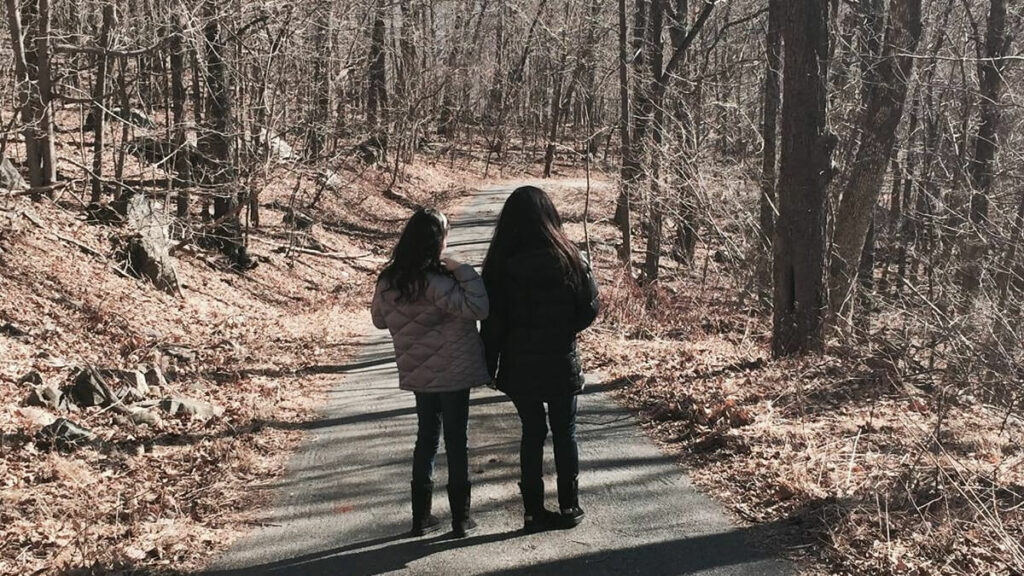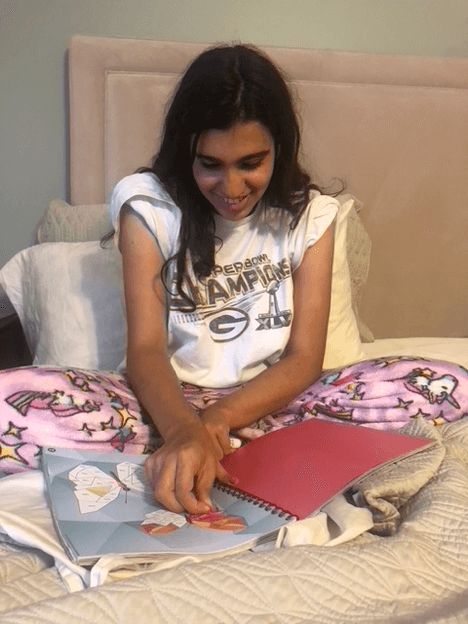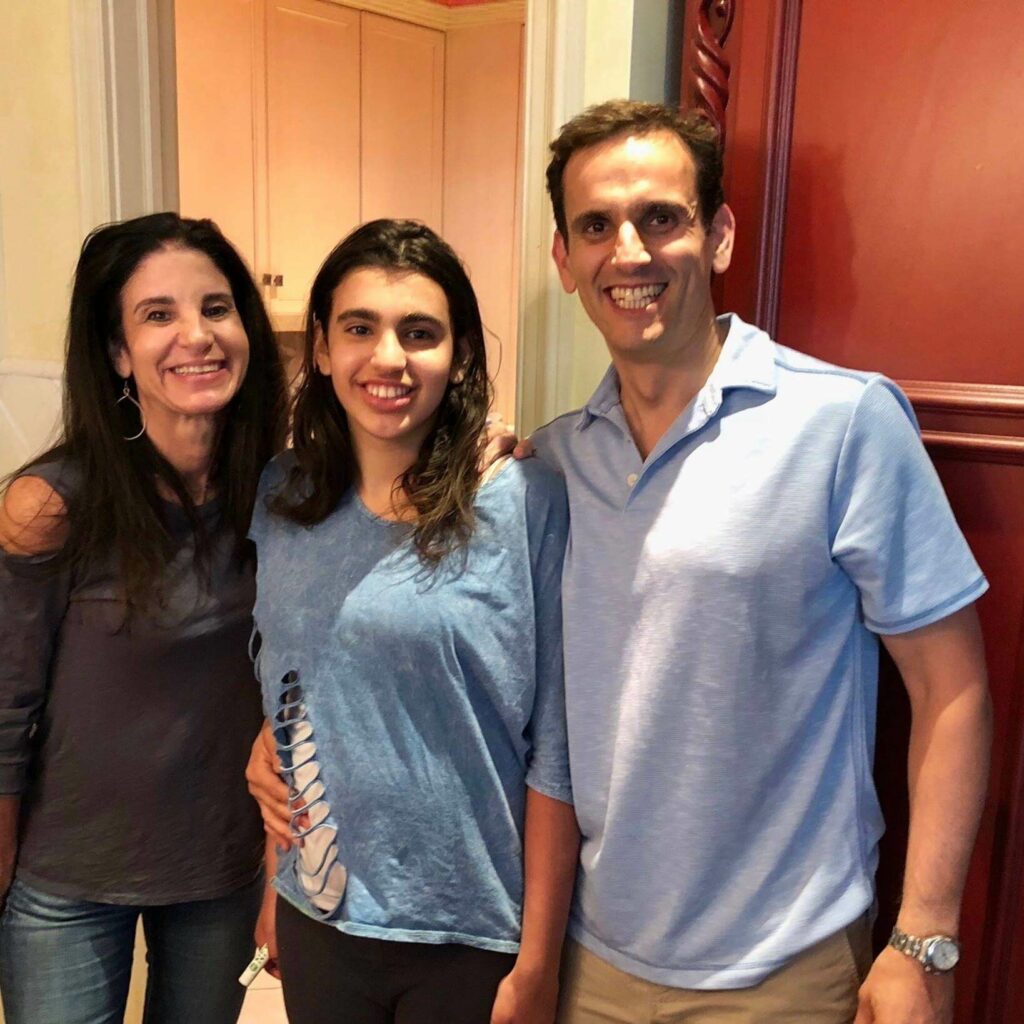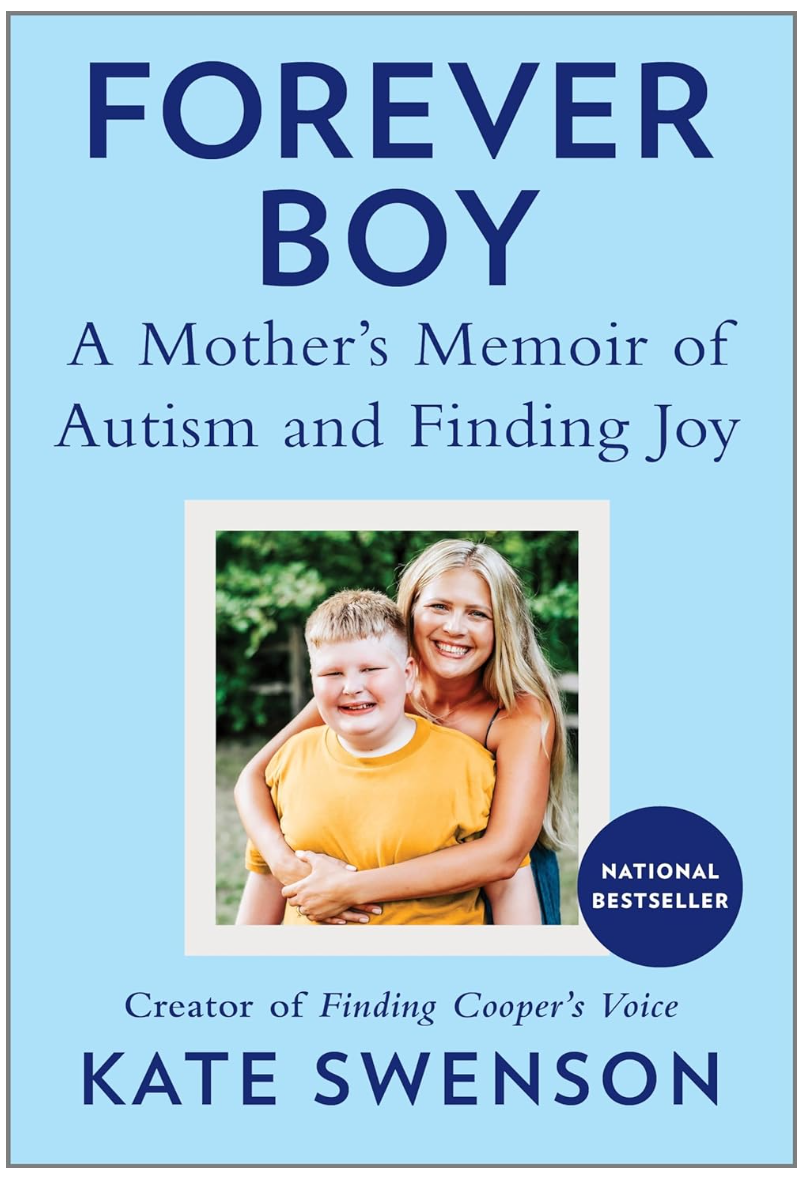The Ebbs and Flows of Autism

Early this morning our daughter came into our room, hopped into bed next to me, and began working on her intricate mindfulness sticker book.
I watched as she elaborately and precisely filled out each piece of the picture, quicker than I ever could. A beautiful sight.
I said “good morning, sweetie”, but did not get a noticeable response.
Craving interaction, I asked her what she was making a picture of in her book. Sadly, again there was no response.
So, I re-asked, even more enthusiastically— still no response. Then I handed her the keyboard she often types on to express herself when her verbal voice “isn’t working right”.
To my dismay, she pushed it away saying “no“.
Oh no, — last night she wasn’t responding to our questions either. I silently felt my body begin to flood with panic.

After 18 years, I should be used to not getting quick responses sometimes; however, despite the fact that I’ve seen this before, the worry and dread started to spread within me:
Has she regressed?!
Why has her verbal language, which was not a lot to begin with, gone down the past week?
Why is she pushing away her typing keyboard, something that’s been a wonderful gateway for conversations?
Has she lost her communication skills?
Did I imagine all those huge gains she had made?
What am I doing wrong?
Then came the litany of sad thoughts:
She’ll never be fully independent, always needing some supervision.
Never get a driver’s license. Never have a typical college experience or full time job.
Never have kids (and my husband and I won’t ever be grandparents)
Never….screech- STOP
I thought back to our dreams for her when she was an infant: what preschool would be best to steer her towards success?
Would she go to my college alma mater, USC?
What activities and groups would she become involved with? Most important was that she’d be able to choose her own path. Her dad and I were confident of that.
My and my husband’s expectations (and priorities) quickly changed when she was 2-3 years old. That’s when social reciprocity, language, and attention fell notably behind her typically developing peers.
Then, dysregulation and frequent crying overwhelmed her and us.
For the next several years our focus turned to helping her: Expand communication beyond her most basic wants and needs.
Minimize meltdowns, by figuring out what was causing them and how to reduce the triggers.
Independently choose and enjoy productive leisure activities.
Go to public places with confidence.
Alleviate her panicked reactions, which included strong grabbing, when people quickly came close to her.
While working hard in all these areas, for years there was no relief in sight.
But look at her now!
She’s sitting comfortably next to me, peacefully, happily completing complex sticker books that I wouldn’t have the precision to do. She spends much of her free time drawing beautiful pictures, making stylish jewelry, and teaching herself other crafts.
She regularly makes pancakes, sandwiches, and other full meals independently. (And she cleans up after without my asking.)
She does chores better than many of her non autistic, “typical” peers; making her bed, taking out the trash, loading and emptying the dishwasher, setting the table– even doing her own laundry from start to finish.
She enjoys reading, writing and most academics.
To our great surprise, over the past few years, she’s willing, and sometimes even eager, to try new things. She’s begun to relax and take pleasure in going to various public places. She’s now content most of the time.
She has stopped asking repetitive questions in a constant stream, using a piercing nervous screeching voice.
She no longer needs everything written down 50 times throughout the day.
She now allows for sudden changes without tail spinning into a frenzy. In fact, she stays calm and poised. She’s become flexible- FLEXIBLE-a word we never thought we’d be able to use to describe her.
All things I once worried might not ever happen. But they have!
She’s come a long way! She surpassed where her dad and I, at the ages of 4-14 years, dreamed she could be in this life.
Even during Covid.
I remind myself that in the past, when we’ve thought communication skills were lost, they’ve eventually come back stronger, and they will again. They won’t ever be typical, but they’ve expanded enough to have some meaningful and wonderful conversations.
Are we on anywhere close to a typical 18 year old path? Definitely not, nor will we ever be. Her autism still holds her back from many things that most people take for granted, such as fluently talking at will, controlling all her body movements, not going into sensory overload during certain public outings. These are challenges that are not going to disappear.
But despite these challenges, she’s now happy and productive. She’s at peace and enjoys life. She is charming, smart and sweet, with a great sense of humor. She loves her family and friends. In fact, she adores her people, and they adore her.
She is finally able to communicate her ideas; albeit, in a different way than most.
For her, communication consists of using some minimal verbal language, and is often much more elaborate through typing. Still, sometimes, she just needs a break from using words, verbally or typing. That’s okay. She needs to know that her dad and I know that, too.
As her parents, we’re proud she’s persevered and overcome so many significant obstacles, some too long to list. We’re grateful for the joy she feels and brings.
Suddenly, I felt my dread and fear dissipate, as feelings of gratitude, inspiration, and hope took their place.
I looked again at her beautiful face and peaceful body, gave her a kiss, and exclaimed, “I love those pretty butterflies you made!” She smiled. A big genuine, wonderful smile.
As she got out of the bed and walked to her room, I smiled, too, ready for her to independently get dressed and make her own breakfast.

Written by, Linda Orleans
Linda is a mother, wife and holds a Masters Degree in Social Work and Education. She lives in Maryland with her beautiful 16 year old daughter who has autism; and her husband, who specializes in financial planning for families who have a loved one with special needs. Having scaled back from her full-time position as a school social worker, Linda works with schools and the community, assisting in programs designed to help her daughter and others with special needs bond with their neurotypical peers.
Interested in writing for Finding Cooper’s Voice? LEARN MORE
Finding Cooper’s Voice is a safe, humorous, caring and honest place where you can celebrate the unique challenges of parenting a special needs child. Because you’re never alone in the struggles you face. And once you find your people, your allies, your village….all the challenges and struggles will seem just a little bit easier. Welcome to our journey. You can also follow us on Facebook, subscribe for exclusive videos, and subscribe to our newsletter.

